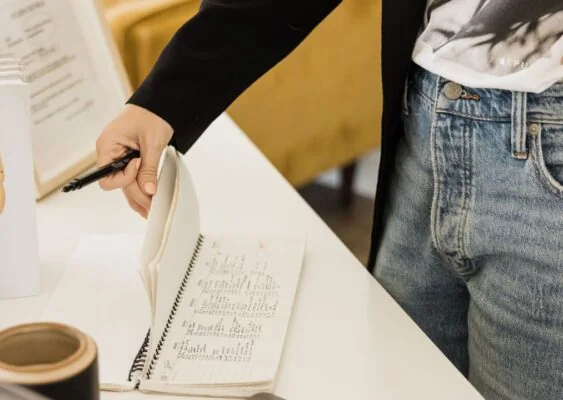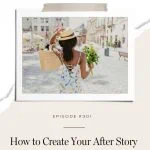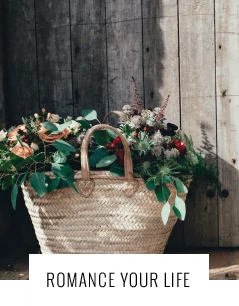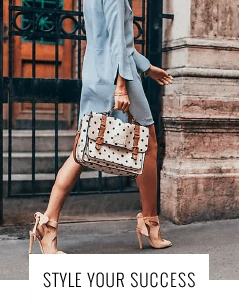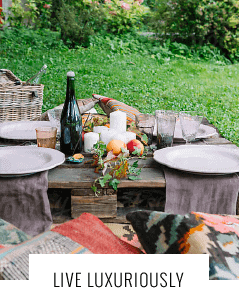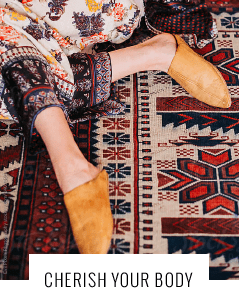Listen to the Full Episode:
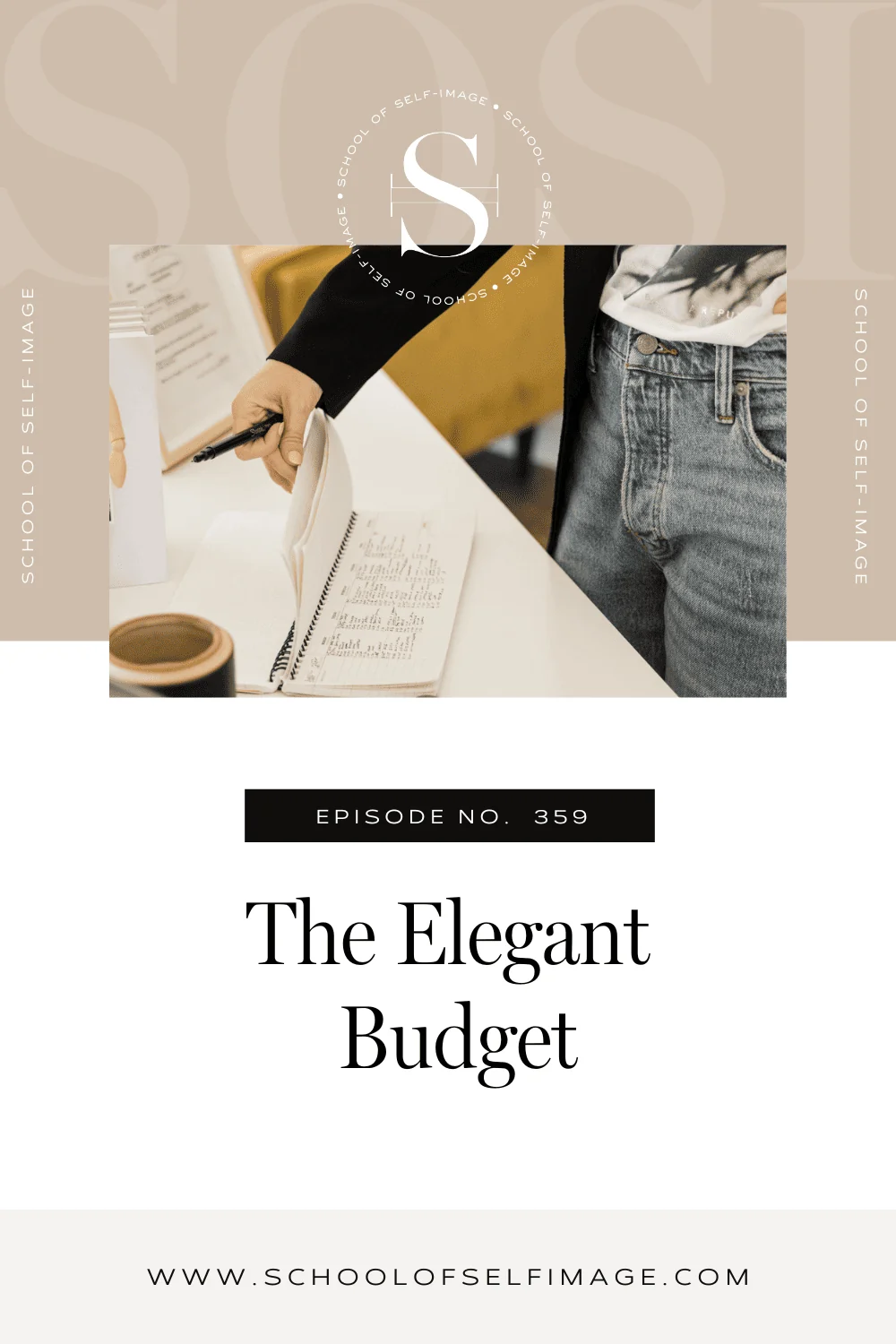
The Money Garden: Design, Nurture, and Enjoy Your Financial Life.
In this episode, Tonya Leigh discusses the concept of elegance in budgeting. She emphasizes the importance of spending in a way that enhances life and brings abundance rather than scarcity and fear. Tonya shares her personal practice of having a monthly "money date" to connect with her finances and make intentional decisions intimately. She highlights this practice's positive impact on her net worth over the years. Tonya also mentions her upcoming workshop, "The Money Garden," where she will delve deeper into money mindset and intentional money management.
Living within our means is also highlighted as an important aspect of an elegant budget. Overspending can lead to stress, anxiety, and a sense of scarcity. The host encourages living within our means to create a sense of abundance and wealth. This means appreciating and fully utilizing what we already have before bringing in new things. It is about being mindful of our purchases and avoiding buying things that will go unused or sit in our closets.
Overall, the episode promotes the idea of an elegant budget as a way to create a fulfilling and abundant life. It encourages conscious spending that is driven by joy, excitement, and alignment with our values and goals.
Episode Details:
- 00:01 Elegance in spending
- 05:10 The elegant budget
- 09:41 The Three Mothers
- 12:44 The Pareto principle
- 17:09 Investing in personal growth
- 23:38 Maximizing your means
Quotes
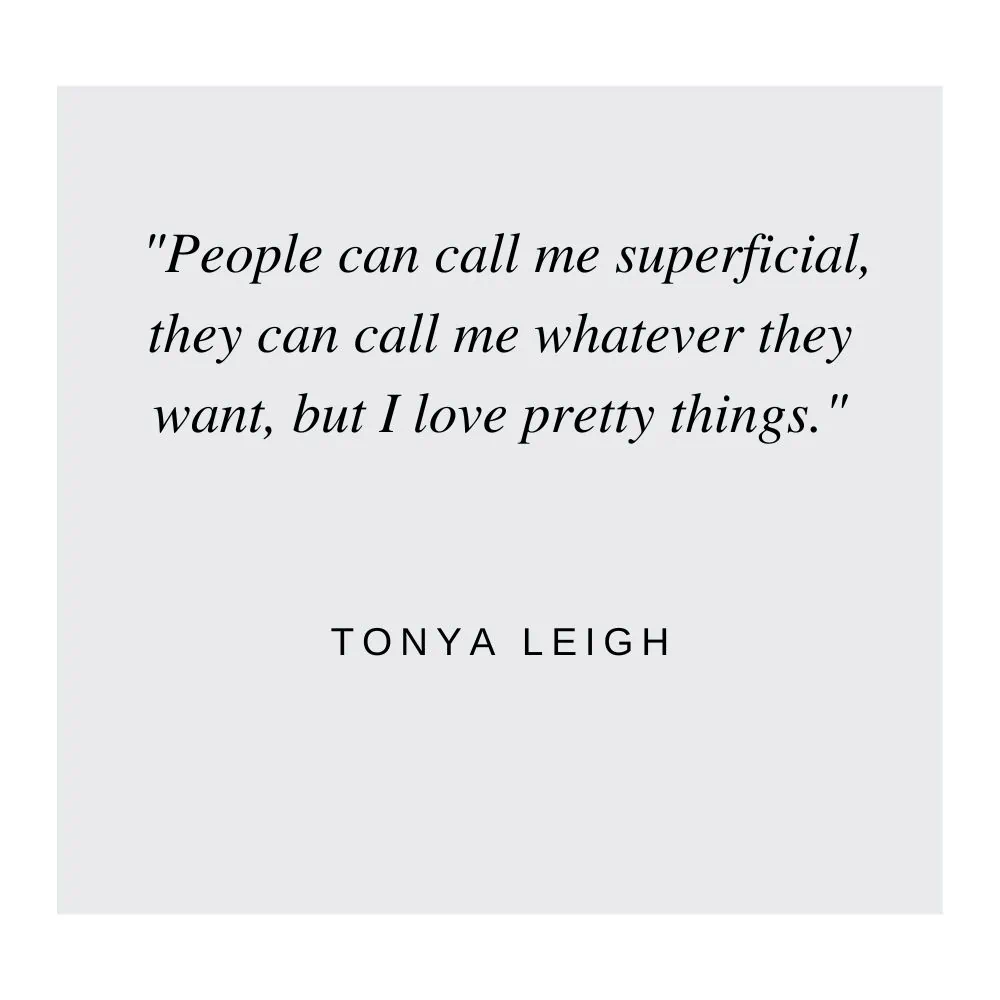
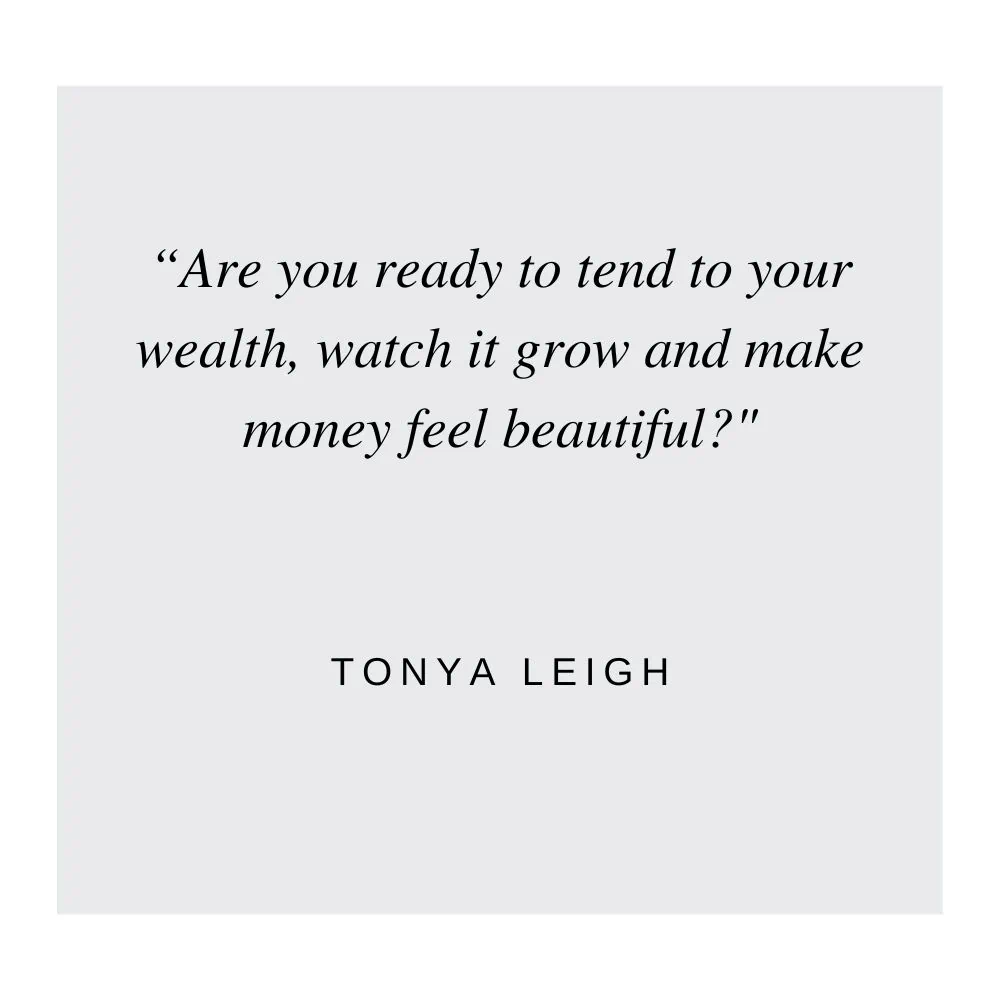
Useful Resources:
- Money Garden Workshop: https://schoolofselfimage.com/money
- Join Now! https://schoolofselfimage.com/join
- FREE Download: https://schoolofselfimage.com/self-image-manifesto/
- Join us at SOSI South!: https://schoolofselfimage.com/south
- Sign up for the Weekly Edit!: https://schoolofselfimage.com/EDIT
Connect with Self-Image Coach Tonya Leigh:
- Website: https://schoolofselfimage.com
- Instagram: https://www.instagram.com/schoolofselfimage
- Facebook: https://www.facebook.com/TonyaLeighOfficial
- TikTok: https://www.tiktok.com/@thetonyaleigh
- YouTube: https://www.youtube.com/@schoolofselfimageOfficial
Episode Transcript:
Between overindulgence and frugality is elegance. It's the space where you are spending in a way that makes your life better. Where you feel light and spacious, not heavy and burdened. A place where you feel abundant, not lack. A place where your spending is being driven out of joy and excitement, not scarcity and fear. This is about being efficient and purposeful with your money. This is about having an elegant budget, and that's what we're talking about in today's episode. So let's dive in, my friend.
Welcome to the School of Self-image, where personal development meets style. Here's your hostess, master life coach, Tonya Leigh.
Hello, my friends. How's it going? More importantly, how are you feeling? Are you feeling good? I'm feeling great. I just wrapped up my money date. Yes, I go on a money date once a month. I used to do them every single week, and now I do a really focused money date at the beginning of each month. And I've been doing this for years, and it's basically a date where I get really intimate with my money.
I look at my net worth for the month. I look if it's gone up or if it's gone down, and I ask myself some really, really powerful questions. And what I can tell you all is that since I started doing a money date many years ago, I have noticed that my net worth has continued to grow over time. And this is what happens when we don't neglect our money. It's what happens when we're not afraid of our money. It's what happens when we clean up our thoughts and our mindset around money and really be intentional and thoughtful with how we treat our money. I don't know if you saw this, but I am about to host a five-day workshop called The Money Garden. Within this five-day workshop, I'm going to be sharing five really core lessons to growing your wealth, but even more importantly, having a beautiful relationship with money.
As Coco Chanel said, there are people that have money and then there are people that are rich. I want this community to feel rich in all of the ways. Wealth comes in many different forms. It's not just financial wealth, I'm talking about spiritual wealth and physical wealth, social wealth and intellectual wealth. There are all these different areas where we can really increase our wealth. And I'm going to be talking about all of this during the Money Garden. And here's the really cool thing. It's absolutely free. When you join, you get access to the daily audio lessons as well as the beautiful workbook that comes with the workshop. And for those of you who want to dive deeper into this topic and you like to give yourself the VIP treatment like I do, there is a VIP experience on the backend. So in the VIP experience, we are going to have three live soirees, where I'm going to be talking about some really juicy topics around money, such as how I structure my money date.
I'm even going to be giving you the net worth calculator that I use, and I'll show you exactly how I use it and the questions that I ask myself each month for my money date. I'm also going to be talking about finding that balance between enjoying today and spending money today versus caring for your future. And even today's podcast episode's going to talk about that a little bit. And then we're going to be talking a lot about self-image and money and how you really need to focus on how you see yourself in your identity in order to attract, create, and continue to build wealth. So those intimate little soirees that we're going to be having in the VIP experience are going to be so, so valuable. In addition, when you join as a VIP, you're going to get my money garden visualization that I created, and it's a really beautiful guided visualization to help you picture your wealthy life, whatever that looks like for you.
So when you join the Money Garden, if you want to upgrade, it's just $37 for the VIP option. And the other cool thing is as a VIP, you get to keep the recordings for life. With regular attendance, you will lose access. So either way, come and join us either as a general attendee or as a VIP, whichever feels best for you. But this is going to be some really beautiful work that we do around money during the Money Garden workshop. And so that is a great segue into today's topic where I want to talk about the elegant budget. When it comes to money. One of the things that I've noticed is that the similarities with money and weight are very, very similar. For any of you who have struggled with your weight and you've struggled with money, then you will be able to see the similarities that I'm about to speak of.
I remember when I was trying to lose weight, I would do this dance between deprivation and overindulgence. And the best way to think about it is to use the metaphor that my mentor Martha Beck used when she talks about the wild child and the dictator. So the wild child is that part of you that hates being deprived. Maybe it's a part of you that was deprived as a child and she is the part of you that's like, "Let's party today. Don't wait another day. Go out there, eat the cake, spend the money, dance on tables, enjoy life today." Now, she's a lot of fun, but she also can wreck your future plants. Think about it, eating what you want when you want, spending as much money as you want today is stealing from your future in some ways. And she is driven out of fear.
She's so afraid of not having enough, of not enjoying life. And I have spent a large part of my life as a wild child. And I think it happens to many of us who grow up with such strict upbringings. It's like, oh, finally, we're free and we need to love and understand that part of us, but she does not need to run the show. We need to appease her occasionally and let her have the cake, let her have the splurge, the purchase. But if she's running the show all of the time, it's not a good thing. Now, on the flip side, we have the dictator. And this is the part of you that's so afraid of the wild child. It's the part of you that's afraid of what is going to happen if you aren't hard on yourself; if you're not beating yourself up.
And so this is the part of you when it relates to weight is the one that says, "You better not eat that. You're going to get fat. How dare you? You need to go run two miles. You just had a piece of cake." Really just extreme restriction. And just like the wild child, this is the part of you that's just afraid of losing control, that's just afraid of not being able to create what you want. And it's not good to let this part of you be in control either, because life is going to be no fun if the dictator is in charge all of the time. So as this relates to money and spending, think about the wild child who wants to spend all of the money. She's the one that is on Amazon every day, buying up stuff, living her best life today. But she also is full of scarcity and it feels really heavy. She has probably a lot of stuff, and it feels so burdensome, but it's a dopamine hit at the moment to buy those things.
And then the dictator is the part of you that's like, "Okay, we are cutting you off. We are not spending, how dare you? You are so foolish. You make so many money mistakes, you can't be trusted." It's just that really harsh voice within you. So what do you do? First of all, can you recognize that one of these two parts of you is generally the one that is running the show? You're not alone if you do. And you might find many of us do in one season of our lives, the wild child is in charge, and in another season, the dictator. It's like bouncing between these two extremes. But we want to find an elegant middle, and how do we get there? Well, the way I like to teach it is what I call the three mothers. And so if you think about the very passive mom is the mom that's like, "God, whatever, go spend the money. Just get out of my hair. Go eat the cookie. I just don't have time to deal with you. Just do what you want to do."
And then there is the very aggressive mother who is, "How dare you. You spend that money! You're going to ruin your life." But then there's the loving mother, and she's the part of you that really takes a step back and it's like, "What do you need right now? What do you really need? Do you really need that purse? Do you really need that trinket? Do you really need that gadget from Amazon?" And she just listens and she trusts herself. And sometimes the answer is yes. Sometimes it's like, you know what? I really like my reason for wanting this. I really love how it aligns with my values and my goals. It feels really good. And then sometimes this can be no. The energy driving it is going to be coming from fear and lack.
And it's interesting how fear and lack can drive us to purchase things. I think a lot of times you think, "Oh, if I had a lot of money, if I'm really being abundant I'm going to buy all of the things." I have found the opposite to be true. The more abundant I feel, I don't feel the necessity to buy certain things because I realized that so many times in my life I was buying those things because I didn't feel abundant. So when I am teaching around weight loss, in fact, within the School of Self-image, when you join as an annual member, you get access to the slim self-image. And me and the community manager, Laura, who is a very, very seasoned weight loss coach, we teach it together. And one of the tools that I teach in there is the hunger skill.
And I talk about eating to the point of elegant satisfaction and learning what that feels like for you. And the same principle can apply to money. Learning to spend and save in that area of elegant satisfaction where you feel like, "Oh my goodness, I'm so sated, I'm so energized. I'm so feeling abundant with how I'm spending my money. I don't need to spend anymore." And when we deprive ourselves too much, we also can become hungry for experiences and things that we deeply, deeply want. So it's figuring out where that point of elegant satisfaction is for you. And that brings me to today's topic, which is all about the elegant budget. And the way I'm thinking about this, the elegant budget is when you are spending between a -2 and a +2. It's the very same principle of eating from a -2 to a +2.
Now, what that feels and looks like for you is going to be dependent on many, many different things. It's going to be dependent on your values, it's going to be dependent on what you love. It's going to be dependent on your goals. And so let's talk about the three things for you to consider when it comes to creating an elegant budget for you. Okay. So the first elegant budgeting tip that I want to offer you is the Pareto principle. It's the 80/20 rule for budgeting. And basically, that states that 80% of outcomes come from 20% of causes. And so when you apply this to budgeting, it means that identifying and focusing on the 20% of spending categories that provide you the most happiness, the most value, and align with your goals. So for example, you could analyze your past spending and realize that 20% of your budget goes towards travel restaurants and let's just say concerts.
And these expenses may provide you with 80% of your enjoyment of life. So an elegant budget would prioritize spending in these key categories while reducing expenses on other things that don't spark joy or fulfillment. This leads me to the second tip for creating an elegant budget, and that is to align your budget with your values and your goals. What do you deeply, deeply value? Because what I've come to understand is that when I put my money into what I value, I am always happy with my choices. And values can change over time. For the longest time, my values have been inspiration, beauty, and connection. I love being in inspiring places. I love being inspiring. I love just inspiration. I think it sparks so much innovation, and so many ideas, and it's just fun to be inspired. And then beauty, I love beautiful things.
People can call me superficial, they can call me whatever they want, but I love pretty things. My soul is so happy when I am sitting in a beautiful garden or a beautiful restaurant. I love being around beautiful people who have beautiful hearts. I love beautiful art and music. And beauty really is in the eye of the beholder. What I may find beautiful, you may find ugly, right? But what I do know is that when I invest in beauty, then I am very pleased with my dollars, because it's me investing in something that is valuable to me. And then connection is about connecting with me, it's about connecting with my friends, my community. And so I love throwing parties. I'm paying for them.
I love traveling to see friends and connecting with them. And so whenever I am putting my money there, I feel really aligned. And more recently, I've been thinking about adding health to my value. I've always valued health, but I think when you have it's something that you just take for granted. And that's definitely been true for me. And as I get older and things change and I get some aches and pains here, and I know that I need to make this a priority. I have thought recently like, wow, I need... not just I need, I want to make health a value of mine. And then also wealth. I want to be wealthy in all of the ways and not just financially. And I think that's something that we talk about loosely like wealth, but you have to define what wealth is for you.
When I think of wealth, I'm not thinking of some crazy number like $25 million. Now, I won't say no to it, but that's not wealth to me. It comes in so many forms. When I think of wealth, I think of what I was just talking about; family, friends, and social wealth. I'm thinking about physical wealth. I'm thinking about the wealth of space. Having spaciousness in my life. And so those would be my top five values, that I know when I'm looking at my budgeting, when I'm looking at where I want to invest, investing in these five areas will always bring me joy. And it's one of the reasons why I love investing in masterminds. I love investing in programs and learning because that feeds so many of my values. It feeds my desire for inspiration. It feeds my desire for connection, because every time I invest in those things, they typically require that I connect with me.
I connect with my truth, I connect with my desires, and then also, depending on what it is, it can support my value of wealth. It can support my value of health because as I grow, as I expand my self-image, it expands the possibility in all of those areas. So what you do is you look at the spending that has brought you the most joy. When you are elegantly budgeting using the 80/20 rule, you're looking for the 20% of expenses that give you the most value or joy, and then focusing your spending on these areas while minimizing the less valuable 80%. So the first thing you would do is analyze your expenses. Start by listing out all of your monthly expenses. Once you've got everything down, categorize them based on their importance and the value that they bring to your life. So when you have your list of values, look at the spending that aligns and that doesn't align. And then what you're going to do is you're going to identify the top 20%.
You're going to pick out the 20% of expenses that provide you with the most joy or value. And this doesn't necessarily mean the most expensive items, but those that have the most significant impact on your life. And then you're going to optimize the remaining 80%. So examine the other 80% and look for ways to either minimize or eliminate costs that don't provide as much value. So example, maybe you discover that you get a lot of joy and satisfaction from your streaming services. So you cut back on maybe the cable that you've bought or magazine subscriptions or things that you just don't use, and you put that money just into the streaming services that you watch most of the time. Listening about clothing, you might recognize that 20% of your wardrobe, the favorite pieces that you always turn to is worn 80% of the time, which is usually the case.
So instead of continuously shopping for fast fashion, you will invest more in those key quality pieces that you love and wear often, and reduce spending on impulse buys or trendy items that you only wear once or twice. They don't give you that much value. Let's say that looking at your spending, one of the things that you deeply, deeply value is international travel. You love that one or two-week international trip that you take every year, and you get less value out of the little weekend trips here and there. So what you would do is you would maybe cut back or eliminate the weekend getaways and really save up to put all of that money into international travel, because it deeply satisfies you. It's aligned with your values. It's deeply rewarding.
And that's how I want you to think about an elegant budget. An elegant budget is you. It's not you depriving yourself, but it's you cutting out the spending that doesn't really bring you joy and maximizing the areas that do. And that brings me to tip number three for elegant budgeting. I find that there is a conversation to be had beyond living within your means. Now, I do promote and advocate to living within your means. I think when you start living outside of your means, it can create a lot of stress, a lot of anxiety, and then lead to more scarcity and worry. And I want us all to feel abundant and wealthy, and that does not happen from overspending.
Again, I think there is a mix-up in the conversation. I think there's been a mistranslation of what it means to be abundant. I think for a lot of people, you immediately associate that with spending, like, I'm going to act as if I am wealthy and I am going to overspend and go into debt. But that doesn't create a wealthy feeling, and it's the feeling that we're after. I've been doing this work for a long time, and I started feeling wealthy way back before my bank account reflected this. And I know that it's a feeling. And sometimes feeling wealthy meant that I flew in the back of the plane because booking a first class ticket just brought up all of the scarcity, and it was an action taken out of fear and scarcity.
And then there were times when I was in the back of the plane that was like, oh, it would be a really abundant choice to actually fight first class. So as you can see, it's not about the purchase, it's about what's driving the purchase. And so the last tip that I want to talk about in creating an elegant budget is not just living within your means, but it's maximizing your means. It's taking time to want, appreciate, and use what you already have. A lot of times we're bringing in new things, new gadgets, new stuff, and we don't even use it. It's just like this habit of buying things, and then it sits in our closet, it goes unused, and it's not being maximized. And it's why even when I'm teaching style, we shop our own closets. We don't immediately go out and buy a bunch of things.
I want us to get to know and appreciate and learn how to be creative with what we already have. And I've had so many women in my style experience say to me, "Oh my God, I have saved so much money from doing this work. And not only am I saving money, I'm dressing and looking better than I've ever dressed or looked." And so this comes down to that 80/20 principle. It comes down to you knowing your goals and your values. And it also comes down to you maximizing your means. Not just living within it, but maximizing it, making the most of what you have. When you take the time to assess what you already have and to actively and purposefully enjoy it, to use it, to maximize it, what you're going to find is that you are less compelled to spend money in areas that the things you already have are fulfilling.
So let me give you an example, and this is an example that I know some of y'all can relate to. I've coached some of you all around it. I've definitely struggled with this one, and I understand it. An example is around books. How many of you love a good book? When I think about my two values of beauty and inspiration, books hit both of those values. I love beautiful coffee table books, and I love books that grow me, that offer new perspectives, that offer a new experience, or a story that's really inspiring. And I have so many of them. So what often happens is I'll get on Amazon and a book will pop up and my brain's like, "Oh, you should get this. You should totally get this. I've heard it's really good." Then I think about the books that I already have that I haven't read, that I haven't consumed.
So I remind myself before we buy another book, why don't we maximize and read and enjoy the ones that we already have? And this is something that I have been working on a lot. In fact, some of you all may remember, that last year I did a six-month no-spending challenge for myself. Now, you may think, well, that sounds like the dictator. It wasn't. It was definitely the loving mother. It was definitely from an abundant fun energy. And I loved what came up for me. I realized that I already have so much. And this challenge specifically was for my closet. I didn't want to add anything else to my closet for six months. I wanted to get to know my wardrobe again. I wanted to get to see what I already had and maximize it.
And so by me doing that, not only did I save so much money, but I was able to look at my spending and where else I wanted to place those funds that would have a big effect on my life, a big positive impact on my life because I realized that when I'm maximizing certain areas, I can then financially invest in other areas. When I'm maximizing my current means, when I'm enjoying what I already have, when I'm using what I already have, it frees up funds to maybe invest in other desires, or maybe investments that will feed my future in a positive way. And so again, maximizing your means, maximizing what you already have will allow you to have more money to put into other things.
So those are the three tips that I have for you when you're thinking about budgeting in an elegant way. And for me personally, I don't have a very strict budget. To me, that is very synonymous with me having a strict diet that I was trying to follow and failing miserably, by the way. I really do use the same tools as I use with my eating. I stay connected to my values. I stay connected to what's driving my spending. And I know if I am coming from a place of fear or scarcity or FoMO, it's probably not something that I need to invest in right now.
I want my investments to be full of excitement, full of joy, full of abundance, full of love. And I just find that when I follow those principles and I stay within a -2 to a +2 with my spending, it works out. It supports me. It's a way of handling my finances that feels beautiful and expansive and joyful and abundant. These are the types of things that I'm going to be talking about within the Money Garden, and especially for those of you who decide to join as a VIP, I'm going to be pulling back the curtain and having very open conversations around money, how I've had to change in order to take care of my money, earn more money, and what that process has looked like. And that might be the most interesting class of all talking about the self-image challenges that we have as we are growing our wealth.
But I'm also going to be showing you how I go about my monthly money date and giving you my own net worth calculator that I use. And so again, if you want to go dive deeper into the topic of money, if you want to focus on not only growing your wealth but really having a beautiful and abundant relationship with money, go to schoolofselfimage.com/money and get yourself signed up. Have a beautiful, beautiful week, my friends and I will see you on next week's episode. Cheers.
Are you ready to tend to your wealth, watch it grow, and make money feel beautiful? If so, I would love to invite you to step inside the Money Garden, where the grass truly is greener. This is a free five-day workshop that I am hosting, where I am going to teach you how to design, tend to, nurture, and enjoy your financial garden. All you need to do is go to schoolofselfimage.com/money and sign up for the Money Garden. I'll see you in the workshop.
Enjoy the Show? Don't miss another episode!
Pick your favorite platform below:
The Self-Image Manifesto
You’re Invited To Live An Extraordinary Life!
IF YOU LIKE IT, SHARE IT

